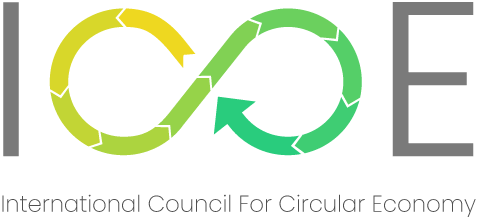State | Country: India
ReNet, an initiative by OneEarth Foundation, working to eliminate ghost nets and fishing industry waste along Goa’s coastline and beyond. They combine circular innovation with community empowerment to address one of the most pressing issues of marine pollution — abandoned, lost, and discarded fishing gear (ALDFG).”
By creating decentralized, community-based solutions, ReNet collects discarded nets and transforms them into functional products such as benches, coasters, shelters, panels, and paver blocks. In doing so, it creates jobs, reduces transportation costs, and fosters local ownership over waste management.
The Problem
Ghost nets are among the deadliest forms of marine debris:
- 🌊 Scale of the Problem: Globally, 640,000 tonnes of fishing nets are lost or discarded annually (Greenpeace).
- 🇮🇳 Local Reality: Surveys in Goa show that 90% of fishers discard nets at least twice a year, with 67% either throwing them into the sea or on beaches.
- ⚠️ Barriers Identified:
- Lack of awareness about environmental impact.
- No infrastructure for collection or storage.
- No incentive to recycle or repurpose nets.
This leads to plastic pollution, ghost fishing, habitat destruction, and microplastic contamination, threatening both marine ecosystems and fishing livelihoods.
Circular Economy Alignment
ReNet replaces the fishing sector’s linear “take–make–dispose” model with a circular, community-driven system:
- ♻️ Resource Recovery: Repurposes fishing nets into durable products, keeping materials in circulation.
- 🔄 Local Loops: Minimizes transport by reprocessing nets close to collection sites, reducing costs and emissions.
👩👩👦 Community Empowerment: Involves fishing communities directly in collection and repurposing, fostering responsibility and ownership. - 🌱 Economic Value from Waste: Transforms discarded nets into market-ready products, creating financial returns and local livelihoods.
- 📚 Awareness & Education: Conducts workshops and outreach to spread knowledge about ALDFG impacts, building long-term behavior change.
By applying circular principles to marine waste, ReNet demonstrates how communities can regenerate ecosystems while building economic resilience.
Impact
🌊 Environmental Impact
- Collected 4 tonnes of fishing net waste through community drives and deep-sea dives.
- Prevented plastic nets from entering the ocean and breaking into harmful microplastics.
- Reduced ghost fishing and marine ecosystem degradation.
👥 Social Impact
- Educated 25 fishing communities about the dangers of ALDFG.
- Created livelihood opportunities in net collection, processing, and product manufacturing.
- Fostered local ownership, ensuring long-term sustainability of waste management.
🏭 Economic Impact
- Repurposed nets into value-added products like benches and paver blocks.
- Reduced transportation costs by promoting decentralized waste handling.
- Demonstrated viable revenue streams from materials once seen as worthless.
ReNet is proof that circular solutions can transform waste into opportunity. By tackling ghost nets — one of the most destructive sources of ocean plastic pollution — it protects marine life, empowers fishing communities, and creates local economic value.
Through community-driven action, education, and upcycling, ReNet is not only cleaning coasts but also redefining waste as a resource, helping build a sustainable, resilient, and regenerative future for India’s coastal regions.
Contact Information
Founder: Ferdin Sylvester
Organization: OneEarth Foundation
Address: Mewo, Patto Panjim, Goa
Email: team@oneearth.world
Phone: +91 89707 12668
Website: www.oneearth.world
